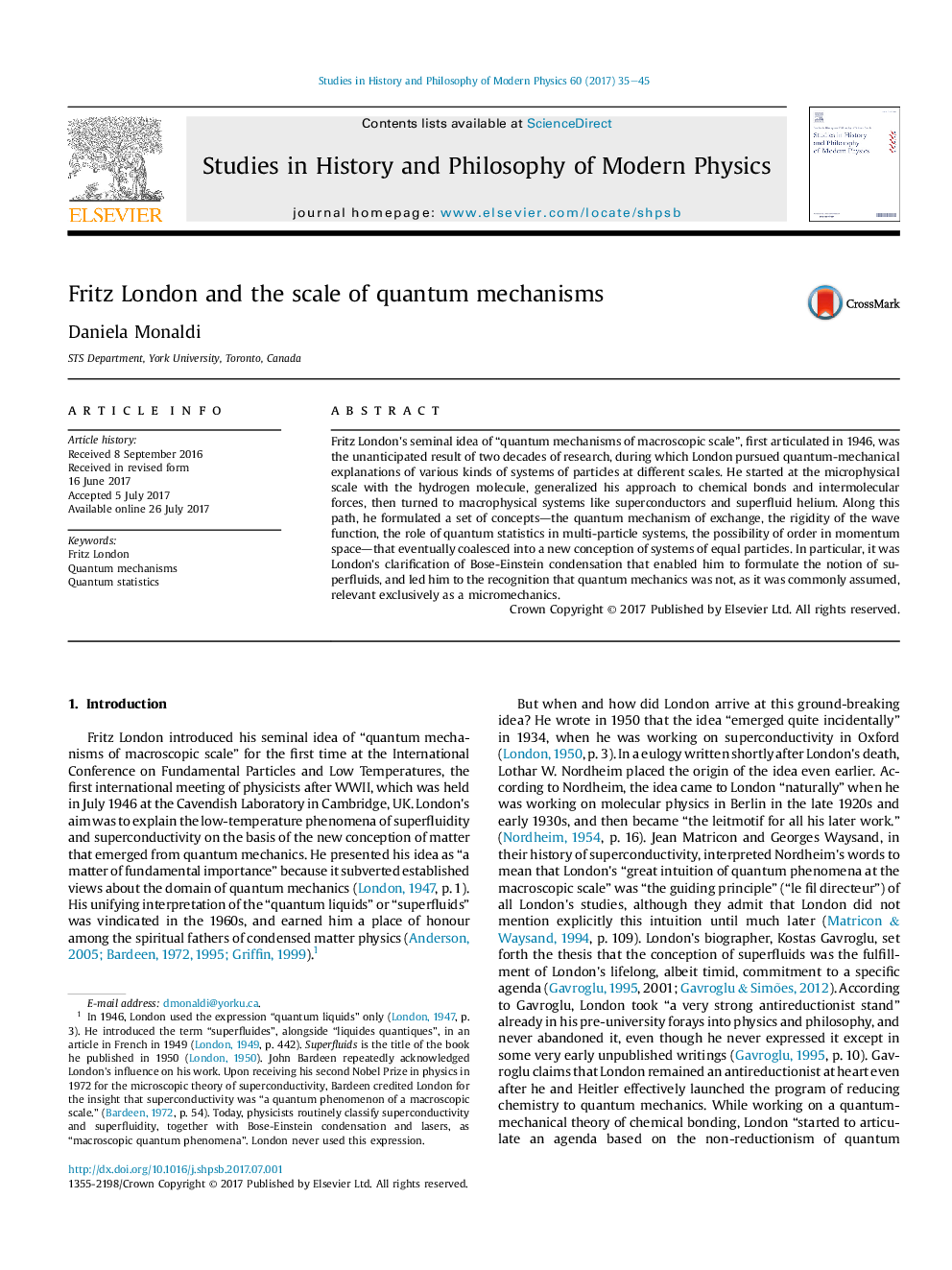| Article ID | Journal | Published Year | Pages | File Type |
|---|---|---|---|---|
| 7551913 | Studies in History and Philosophy of Science Part B: Studies in History and Philosophy of Modern Physics | 2017 | 11 Pages |
Abstract
Fritz London's seminal idea of “quantum mechanisms of macroscopic scale”, first articulated in 1946, was the unanticipated result of two decades of research, during which London pursued quantum-mechanical explanations of various kinds of systems of particles at different scales. He started at the microphysical scale with the hydrogen molecule, generalized his approach to chemical bonds and intermolecular forces, then turned to macrophysical systems like superconductors and superfluid helium. Along this path, he formulated a set of concepts-the quantum mechanism of exchange, the rigidity of the wave function, the role of quantum statistics in multi-particle systems, the possibility of order in momentum space-that eventually coalesced into a new conception of systems of equal particles. In particular, it was London's clarification of Bose-Einstein condensation that enabled him to formulate the notion of superfluids, and led him to the recognition that quantum mechanics was not, as it was commonly assumed, relevant exclusively as a micromechanics.
Keywords
Related Topics
Physical Sciences and Engineering
Physics and Astronomy
Physics and Astronomy (General)
Authors
Daniela Monaldi,
